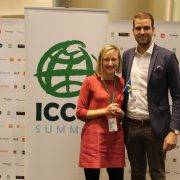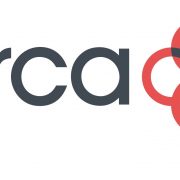Lobbying Regulation: An Update on Developments in Ireland
On March 11th, Ireland became the 15th country with statutory regulations covering lobbying activities when the Regulation of Lobbying Act 2015 was signed into law. This law will take effect on September 1st 2015 and from that point onward, lobbying activities in Ireland will need to be reported every four months. Given that such regulation is a common issue for ICCO members there are some features of the Irish legislation, and the process surrounding it, that will be of interest. Separately, there are aspects of the Irish legislation that will have implications for consultancies based elsewhere, in particular those that engage with Irish ministers and MEPs on European policy matters.
Firstly, there was the approach taken to the legislation by the Irish Government. In 2011, a new government came into office and promised to “introduce a statutory register of lobbyists”. While there had been a number of initiatives in this area in the past, the relevant Minister and public officials came to addressing this challenge with a fairly open mind. At all stages of the legislative process, there were opportunities for stakeholders (including ourselves) to input. That whole process, including all the discussion papers and stakeholder submissions, is documented on the relevant Department’s website.
As the representative body for PR consultancies, our key concern was to ensure that there was a level playing field among all those who engage in lobbying activities: irrespective of whether they worked in-house or in a consultancy, or for NGOs, businesses, etc. The final legislation clearly applies to all those who engage in lobbying activities. We were also concerned that other professionals who engage in lobbying activities would not be captured by the legislation, but this is not the case and they are equally covered.
The other major concern was to ensure that compliance does not pose a major administrative burden on our members. We won’t know the final answer to that until the system is up and running. The Register will be entirely online, which should aid compliance and we are actively engaged in the user testing of that system.
In terms of the legislation itself, the Act can be accessed here. To briefly summarise, lobbying is defined as communication (in any form) made personally (directly or indirectly) to a designated public official in return for payment or as part of their work, relating to:
- “the initiation, development or modification of any public policy or of any public programme
- the preparation of an enactment, or
- the award of any grant, loan or other financial support, contract or other agreement, or of any licence or other authorisation involving public funds
apart from matters relating only to the implementation of any such policy, programme, enactment or award of a technical nature.”
Obviously, there may be challenges of interpretation i.e. what is a technical matter, and where is the boundary between lobbying on the modification of a policy and lobbying on its implementation.
The communication is not all communication with government, rather it has to be with senior public officials for it to be registerable. These officials are defined as government ministers, any elected member of the parliament or local government, MEPs and senior civil servants. When reporting their lobbying activities, consultants will be required to provide:
- the details of the client (i.e. the company name and address, their website and other contact details);
- the details of the officials to whom the activities were directed;
- the subject matter of those activities;
- the type and extent of those activities (i.e. whether the contact was through meetings, phone calls, emails, grassroots campaigns, etc.); and
- the name of the person who had primary responsibility for carrying out the lobbying activities.
This data will then be published every four months. It is important to note that this legislation will apply as equally to firms engaged in lobbying based outside of Ireland, as those inside. So, for example, in the case of a consultancy elsewhere in Europe that contacts an Irish Minister or an Irish MEP about a policy change at European level, they will have to be report to the Irish authorities or an offence will have been committed.
The real challenge is the implementation of the legislation and we will keep ICCO members abreast of how things develop. In the interim, as this is the newest piece of legislation on lobbying out there, and borrows heavily from international experience, it is likely to be drawn upon by legislators in other countries – especially those from common law jurisdictions. We are more than happy to share the experience we have gained during this process with any fellow ICCO members: just ask!
John Carroll is CEO of the Public Relations Consultants Association (Ireland). He can be contacted at john@prii.ie













